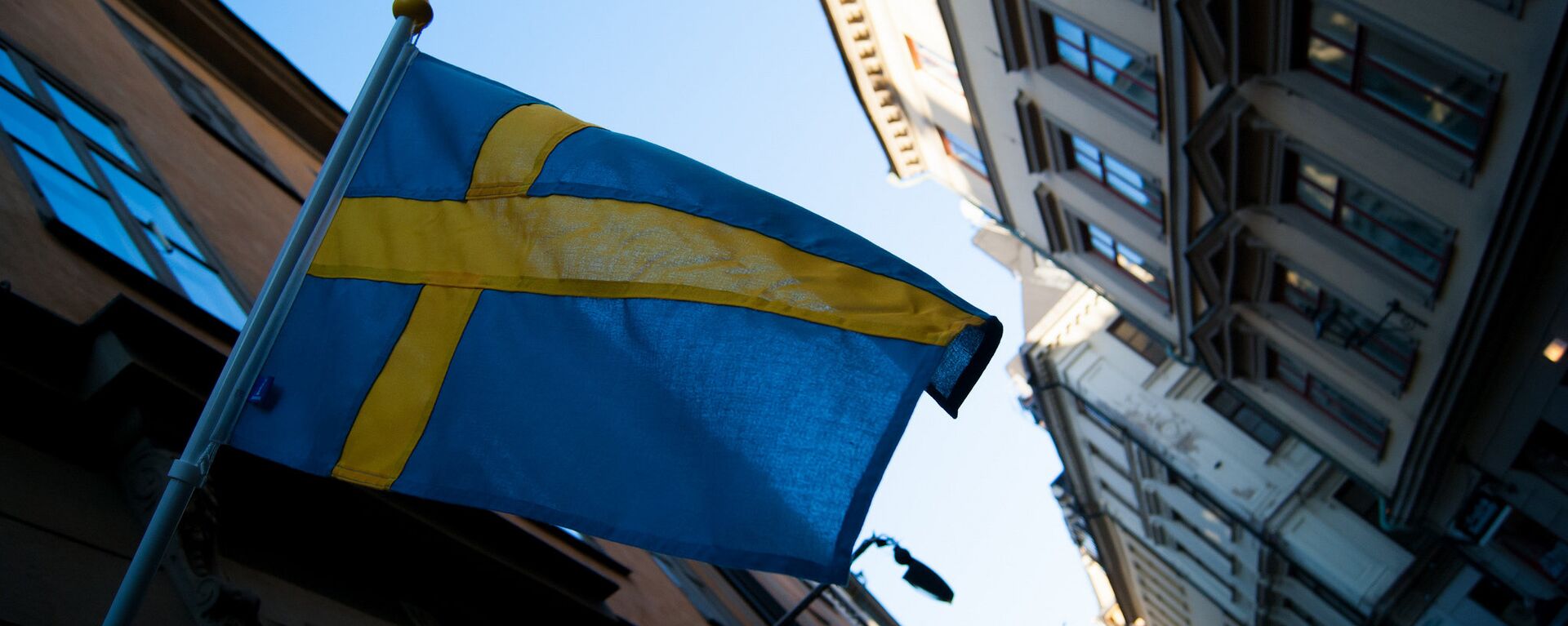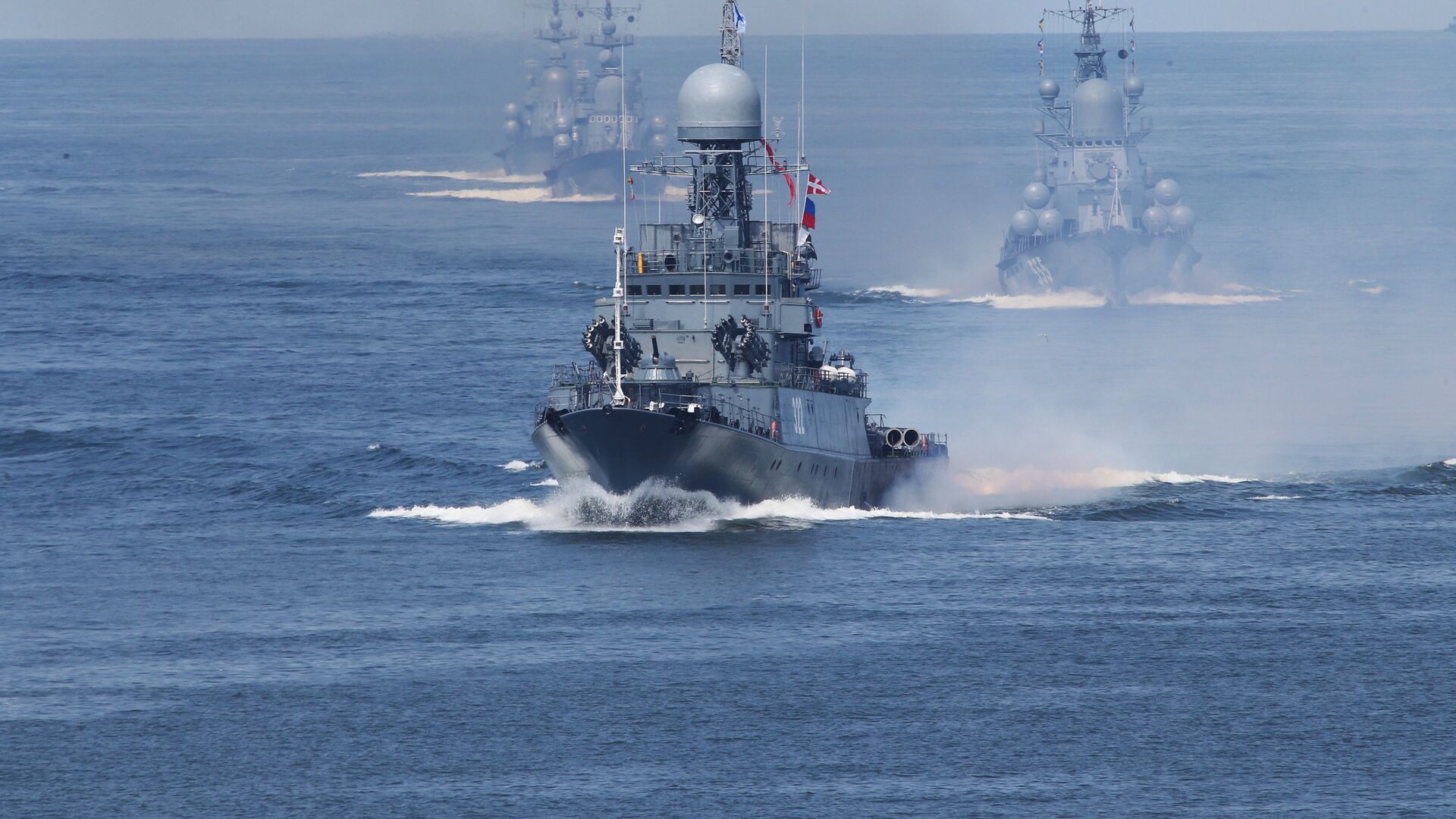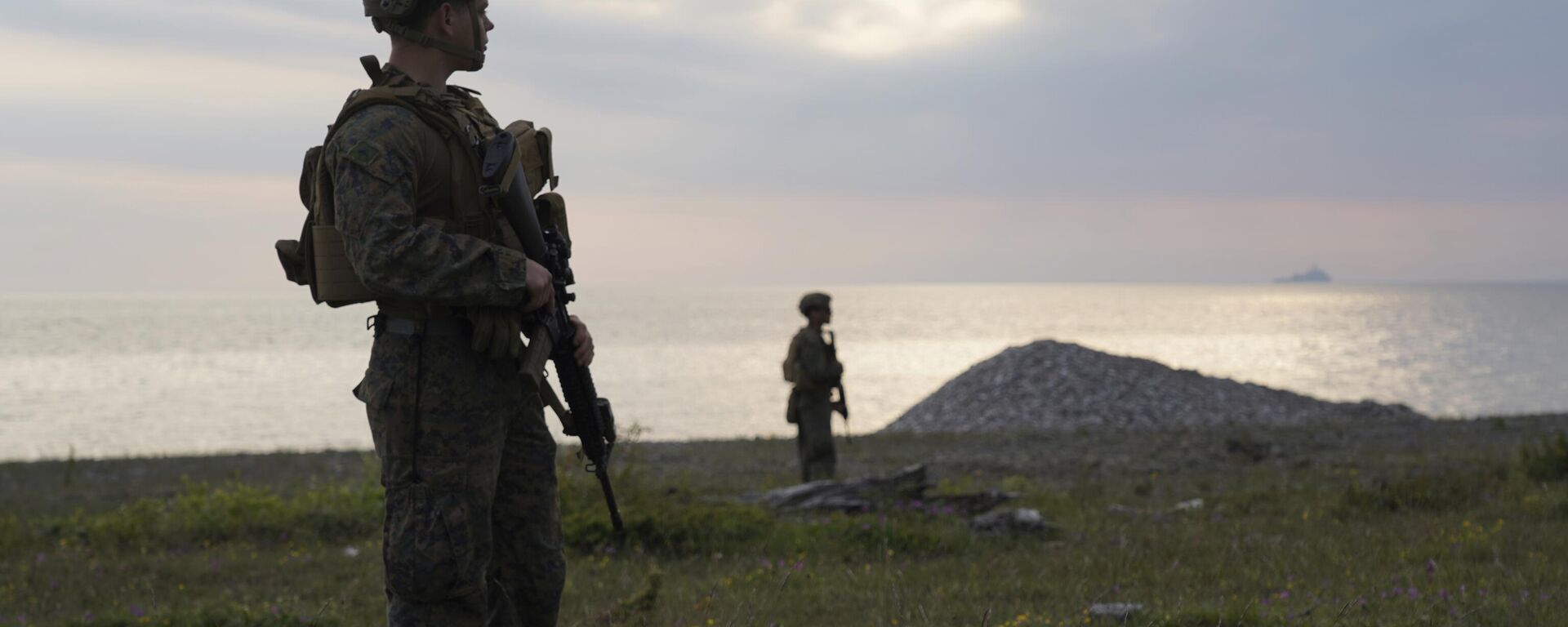https://sputnikglobe.com/20240322/a-nato-lake-not-so-fast-why-russia-wont-cede-baltic-sea-positions-1117492366.html
A NATO Lake? Not so Fast: Why Russia Won't Cede Baltic Sea Positions
A NATO Lake? Not so Fast: Why Russia Won't Cede Baltic Sea Positions
Sputnik International
The Baltic Sea may turn into a "NATO lake" after Finland and Sweden's admission to the transatlantic alliance. The move has created grave security risks, Mikael Valtersson, former officer of Swedish Armed Forces, told Sputnik.
2024-03-22T18:45+0000
2024-03-22T18:45+0000
2024-03-22T18:45+0000
finland
nato
baltic sea
russia
swedish armed forces
nord stream
military
https://cdn1.img.sputnikglobe.com/img/105863/99/1058639956_0:314:3082:2048_1920x0_80_0_0_505c16348c715490e1cc2a8028d10178.jpg
NATO is on a slippery slope towards further escalation after absorbing Finland and Sweden as Russia won't stand by as the alliance tries to block its access to the Baltic Sea.That is according to Mikael Valtersson, former officer of Swedish Armed Forces, and former defense politician and chief of staff with Sweden Democrats.Tensions around the Baltic have escalated steadily, driven by NATO's expansion since the collapse of the Soviet Union and the Warsaw Pact. Poland fell under the alliance's aegis in 1999 followed by Estonia, Latvia, and Lithuania's admission to NATO in 2004.After previously-neutral Finland and Sweden joined the alliance, the Baltic Sea in principle became a 'NATO sea' with the exception of the two short Russian coastlines, the Swedish military veteran stressedMoscow has no other option but to respond to NATO getting closer to its borders by stepping up defenses of its north-western regions. Finland shares a 1,340 km (830-mile) border with Russia, making the matters particularly sensitive for both nations.In an interview with journalist Pavel Zarubin in December 2023, Russian President Vladimir Putin noted that Moscow had revived the Leningrad Military District and started concentrating military units there.Another important aim for Russia, according to Valtersson, is to develop methods to reduce NATO access to the sea lanes in the Baltic Sea. He suggested that new technologies such as sea drones could be used to that end.The Swedish military veteran added that a third pillar of Russian defense would be long-range weapons, which could keep important ground targets in Finland and the Baltic states, especially arms depots, in the crosshairs.In the wake of NATO's expansion in the Baltic Sea and Russia's subsequent response, the region is set to be heavily militarized in the coming five-to-ten years, according to the veteran. He does not rule out the alliance using Russia's defensive push to justify further escalation and raising the stakes — which is fraught with severe risks.To make matters even worse, the Nord Stream sabotage attack — which, according to Pulitzer Prize-winning journalist Seymour Hersh, was carried out by the US and Norway — has raised the question of how far the West is prepared to go in pursuing its geopolitical and economic objectives in the Baltic region.
https://sputnikglobe.com/20240312/sweden-open-to-reinforcing-defenses-on-baltic-island-of-gotland-says-pm-1117275812.html
https://sputnikglobe.com/20240221/sweden-struggling-to-replenish-weapons-after-ukraine-expenditures--reports-1116906320.html
https://sputnikglobe.com/20240304/german-military-leak-added-embarrassment-to-berlins-silence-on-nord-stream-sabotage-1117132702.html
finland
baltic sea
russia
Sputnik International
feedback@sputniknews.com
+74956456601
MIA „Rossiya Segodnya“
2024
News
en_EN
Sputnik International
feedback@sputniknews.com
+74956456601
MIA „Rossiya Segodnya“
Sputnik International
feedback@sputniknews.com
+74956456601
MIA „Rossiya Segodnya“
baltic sea, russian baltic fleet, russian navy in the baltic sea
baltic sea, russian baltic fleet, russian navy in the baltic sea
A NATO Lake? Not so Fast: Why Russia Won't Cede Baltic Sea Positions
Some Western leaders have claimed the Baltic Sea could become a "NATO lake" after Finland and Sweden's admission to the transatlantic alliance. The move creates grave security risks, Mikael Valtersson, former officer of Swedish Armed Forces, told Sputnik.
NATO is on a slippery slope towards further escalation after absorbing Finland and Sweden as Russia won't stand by as the alliance tries to block its access to the Baltic Sea.
That is according to Mikael Valtersson, former officer of Swedish Armed Forces, and former defense politician and chief of staff with Sweden Democrats.
"NATO's main goals in the Baltic Sea are to keep the sea and air lines open to Finland and the Baltic states in case of a conflict with Russia," Valtersson told Sputnik. "Another important goal to do this is to deny Russian access to the Baltic Sea in case of conflict. This will make the situation for the Russian Kaliningrad enclave very difficult."
Tensions around the Baltic have escalated steadily, driven by NATO's expansion since the collapse of the Soviet Union and the Warsaw Pact. Poland fell under the alliance's aegis in 1999 followed by Estonia, Latvia, and Lithuania's admission to NATO in 2004.
After previously-neutral Finland and Sweden joined the alliance, the Baltic Sea in principle became a 'NATO sea' with the exception of the two short Russian coastlines, the Swedish military veteran stressed
Moscow has no other option but to respond to NATO getting closer to its borders by stepping up defenses of its north-western regions.
Finland shares a 1,340 km (830-mile) border with Russia, making the matters particularly sensitive for both nations.
In an interview with journalist Pavel Zarubin in December 2023, Russian President Vladimir Putin noted that Moscow had revived the Leningrad Military District and started concentrating military units there.
"The enlargement of NATO with the admission of Sweden and Finland as members has clearly increased Russian security concerns," Valtersson exlplained. "The main problem is the membership of Finland in NATO, since its closeness to the naval facilities at the Kola Peninsula, transportation routes to the Kola Peninsula and St. Petersburg. This must result in a clear Russian strengthening of military forces along the border with Finland."
"In the long run a number of military systems ought to be deployed. First of all a large amount of air defense, especially long distance, must be deployed to both defend Russian territory but also to greatly reduce NATO capability to use Finnish air space and reduce the usage of air transports over the Baltic Sea to the Baltic states," the military expert continued.
Another important aim for Russia, according to Valtersson, is to develop methods to reduce NATO access to the sea lanes in the Baltic Sea. He suggested that new technologies such as sea drones could be used to that end.
The Swedish military veteran added that a third pillar of Russian defense would be long-range weapons, which could keep important ground targets in Finland and the Baltic states, especially arms depots, in the crosshairs.
"A fourth important question to solve is the precarious situation of supplying Kaliningrad," Valtersson observed. "This must probably be solved by large prestorage of resources so the enclave can withstand isolation for a couple of months."

21 February 2024, 13:30 GMT
"A fifth and final question to solve is to secure Russian territory from ground attacks. To succeed in this a large number of ground units must be deployed along the border with Finland and the Baltic states," he concluded. "Fortifications such as those that were so successful in the Zaporozhye area last summer must also be established, at least at important choke points."
In the wake of NATO's expansion in the Baltic Sea and Russia's subsequent response, the region is set to be heavily militarized in the coming five-to-ten years, according to the veteran. He does not rule out the alliance using Russia's defensive push to justify further escalation and raising the stakes — which is fraught with severe risks.
To make matters even worse, the
Nord Stream sabotage attack — which, according to Pulitzer Prize-winning journalist Seymour Hersh, was carried out by the US and Norway — has raised the question of how far the West is prepared to go in pursuing its geopolitical and economic objectives in the Baltic region.
"The attack on the Nord Stream pipeline showed… the hypocrisy of the NATO countries," Valtersson said. "An attack on vital infrastructure in a country by another country is an act of war and would lead to a sharp response and a vigilant search for the perpetrators. Instead the involved authorities in Sweden, Denmark and Germany have done their best to avoid any serious search for the responsible actors."





